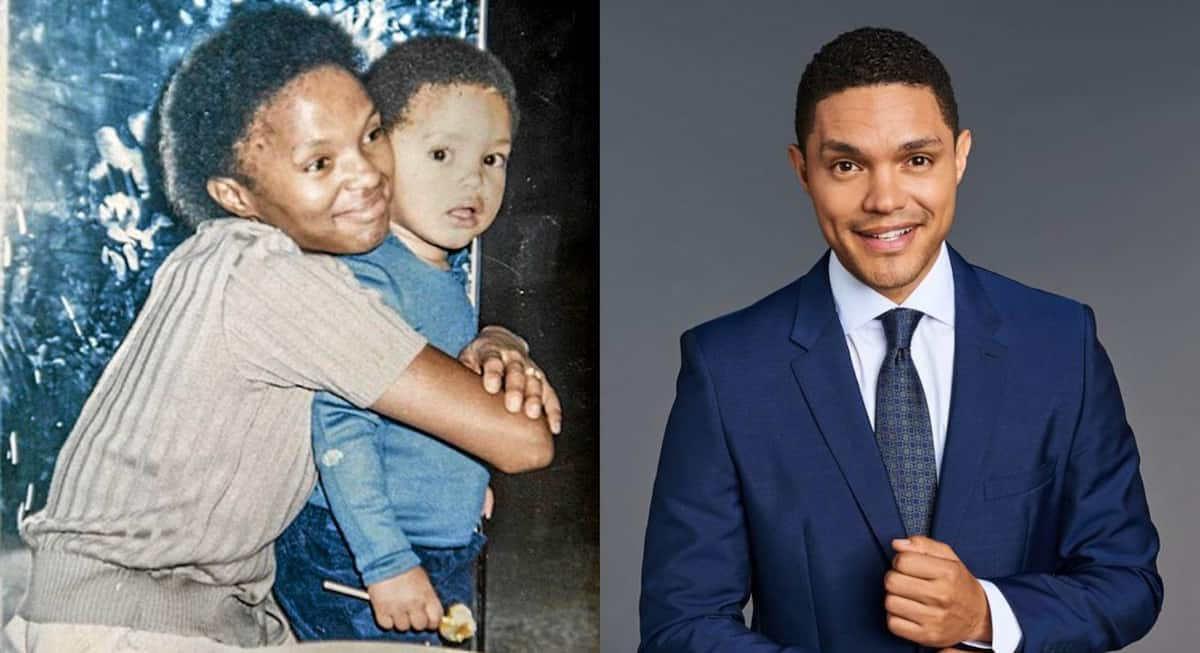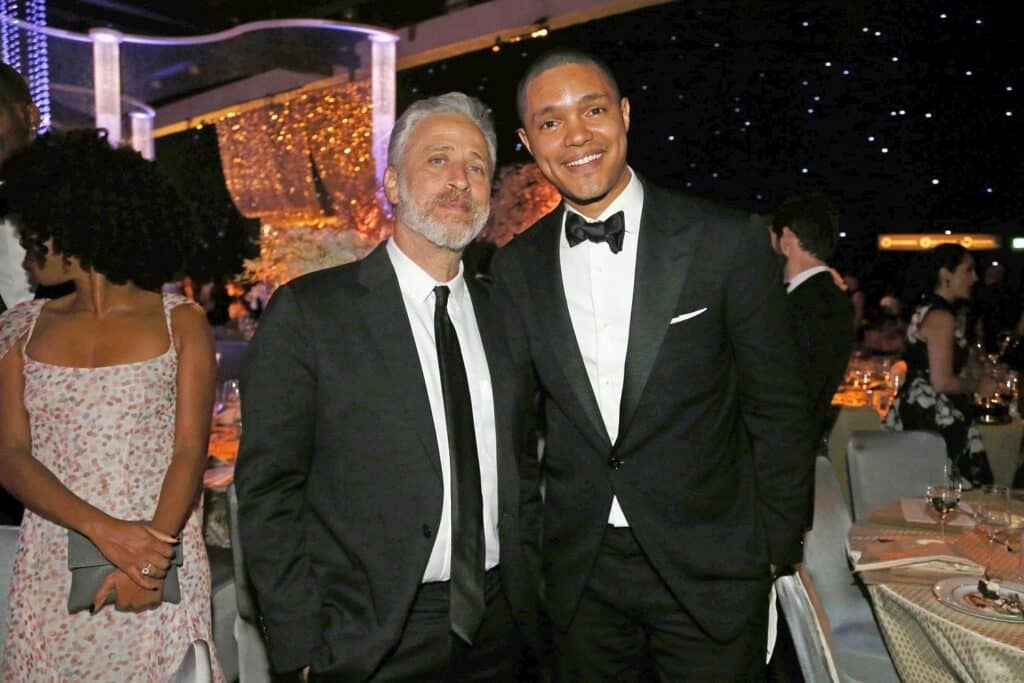Can a life born in the crucible of apartheid, marked by racial segregation and societal constraints, truly blossom into a global phenomenon of laughter and insight? Trevor Noah's journey, from the segregated streets of Johannesburg to the international stage, is a testament to the resilience of the human spirit and the transformative power of storytelling.
Born on February 20, 1984, in Johannesburg, Transvaal (now Gauteng), South Africa, Trevor Noah's very existence defied the rigid racial classifications of the apartheid era. His mother, a Black Xhosa woman, and his father, a white Swiss man, were forbidden by law from marrying, a stark reality that shaped Noah's early life and continues to influence his perspective on the world.
| Category | Details |
|---|---|
| Full Name | Trevor Noah |
| Date of Birth | February 20, 1984 |
| Place of Birth | Johannesburg, Transvaal (now Gauteng), South Africa |
| Nationality | South African |
| Parents | Patricia Noah (Mother), Robert Noah (Father) |
| Education | Maryvale College |
| Known For | Comedian, Television Host, Political Commentator, Author |
| Career Highlights | Host of The Daily Show (2015-2022), Numerous Stand-up Comedy Specials, Author of "Born a Crime" |
| Awards and Recognition | Primetime Emmy Awards, Peabody Awards |
| Marital Status | Single |
| Romantic Relationships | Jordyn Taylor (2015-2018), Minka Kelly (2020-2022) |
| Children | None |
| Website | trevornoah.com |
During the apartheid era, Robert, Trevor Noah's father, was a professional chef. He worked for several years in New York City and Canada. At the time of his meeting with Trevor Noah's mother, Robert possessed a stellar reputation in the culinary world, even owning a restaurant in Johannesburg, South Africa. In a city divided by racial segregation, Robert made a bold move and he employed Black South Africans as members of his kitchen.
- Explore Somali Wasmo On Telegram Latest Channels Updates
- Somali Wasmo Find Telegram Channels Updates Now
The circumstances surrounding Trevor Noahs birth were, to say the least, unconventional. His parents, Patricia and Robert Noah, never married. Their relationship was a clandestine affair, a defiance of the racist laws that dictated their lives. Robert's involvement in his son's life was a constant struggle against the constraints of apartheid. Though the relationship was illegal, Robert was present for the first 13 years of Trevor's life.
Noah's family, particularly his mother and maternal grandmother, played a pivotal role in his upbringing. It was his mother, Patricia, who primarily raised him, instilling in him a strong sense of self and a resilient spirit. The comedian's book, Born a Crime, provides profound insight into his mother's strength and unwavering love.
The meeting of Trevor Noahs parents, Robert and Patricia, in Johannesburg was a pivotal moment. Their encounter, set against the backdrop of apartheid, led to a life that would transcend boundaries. Robert was working as a professional chef at the time. He had earned a strong reputation in New York and Canada before returning to South Africa. He owned a restaurant in Johannesburg, one of the first integrated restaurants in the city, where he employed both Black and white South Africans.
Due to the restrictive laws, Robert faced limitations in seeing his son in public. Their interactions were often brief, furtive moments stolen amidst the oppression. The authorities could have easily jailed them both, making it difficult to navigate the landscape of segregation. These circumstances made their relationship an act of quiet rebellion, a testament to the enduring power of parental love.
Robert Noah, beyond his culinary talents, possessed other skills. He had a passion for cars and all things automotive, which led him to a career as an automotive engineer. This profession had a lasting impact on Trevor's early years. The familys life was a mix of hidden encounters and everyday experiences shaped by the realities of the time.
The relationship between Patricia and Robert was further complicated by the presence of a stepfather, Abel, whom Patricia married. Abel's character was marked by abuse and alcohol issues, which presented another layer of complexity to Noah's upbringing. The comedians narrative reveals the struggles faced by his mother and family during this period.
Trevor Noah's early life was steeped in the realities of apartheid, a system that classified people based on race. His mother was classified as Black, his father as white, and Noah himself navigated the complexities of being of mixed heritage. This racial classification shaped his experiences and formed the foundation of his unique perspective.
Noah has experienced several romantic relationships. He was first linked to Jordyn Taylor, with whom he began dating in 2015 and ended their relationship in 2018. From 2020 to May 2022, he was linked to model and actress Minka Kelly. Information regarding his children is currently unavailable.
Noah's journey, as described in his book, is deeply personal. It chronicles the challenges and triumphs of his life, particularly his relationship with his mother, a key figure in his life. She instilled in him a sense of resilience. Noah's second comedy special on Netflix, titled "Son of Patricia," is named in honor of his mother, reflecting her impact on his life.
The dynamics of his family life were shaped by the apartheid. Noahs mother, Patricia, fulfilled her dream of raising her son on her own terms, without relying on a man's support. Even though Noah has developed a deep connection with his mother, she still thinks he can benefit from connecting with Robert. While neither of them has talked about this, Patricia believes a reconnection could be beneficial.
Trevor Noah's father, Robert, also played a significant role in shaping his son's life. Robert was a chef. Roberts presence in Trevor's life was intermittent, governed by the limitations imposed by apartheid. Their meetings were infrequent, conducted under the shadow of the law. This separation fueled the need for connection, and they managed to make the most of their time.
Noah's life, as described in his memoir, is not just a collection of personal stories. It's a powerful commentary on the nature of identity, the impact of systemic racism, and the enduring strength of the human spirit.
The comedian, television host, and author from South Africa has ascended to become one of the most recognizable figures on the world stage. His ability to transform personal experiences into universally relatable humor and insightful commentary has solidified his place as a voice of his generation.


